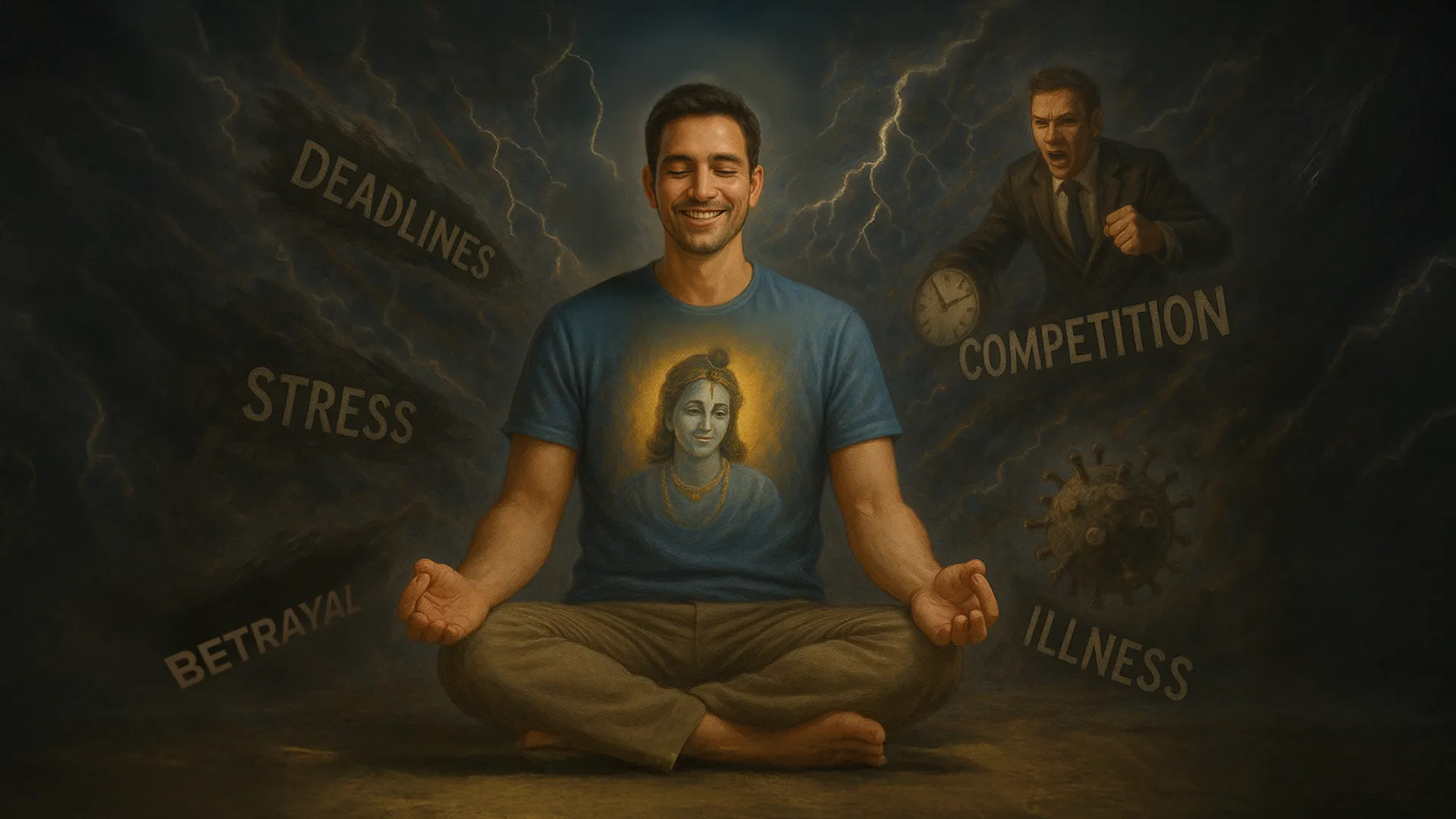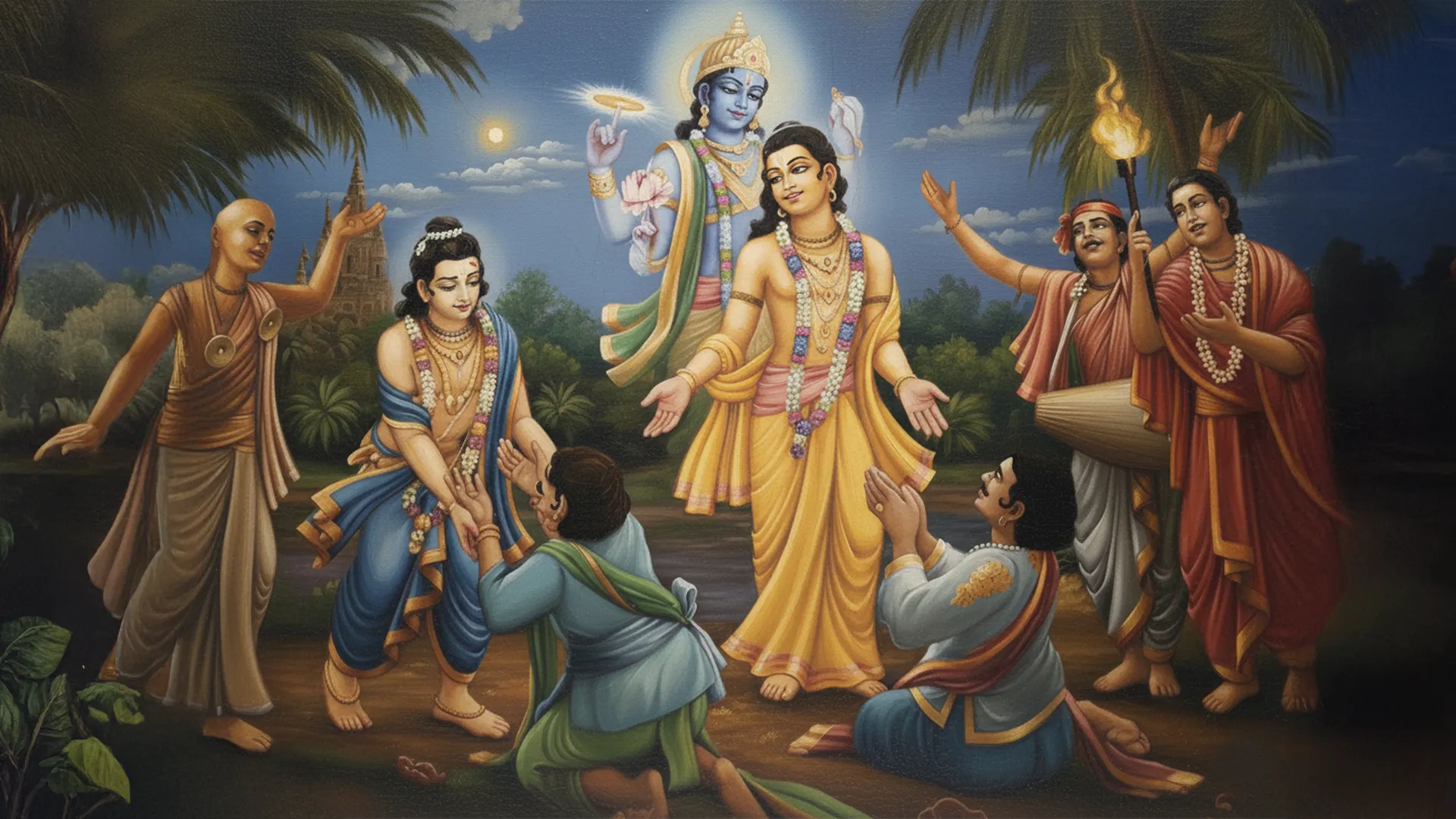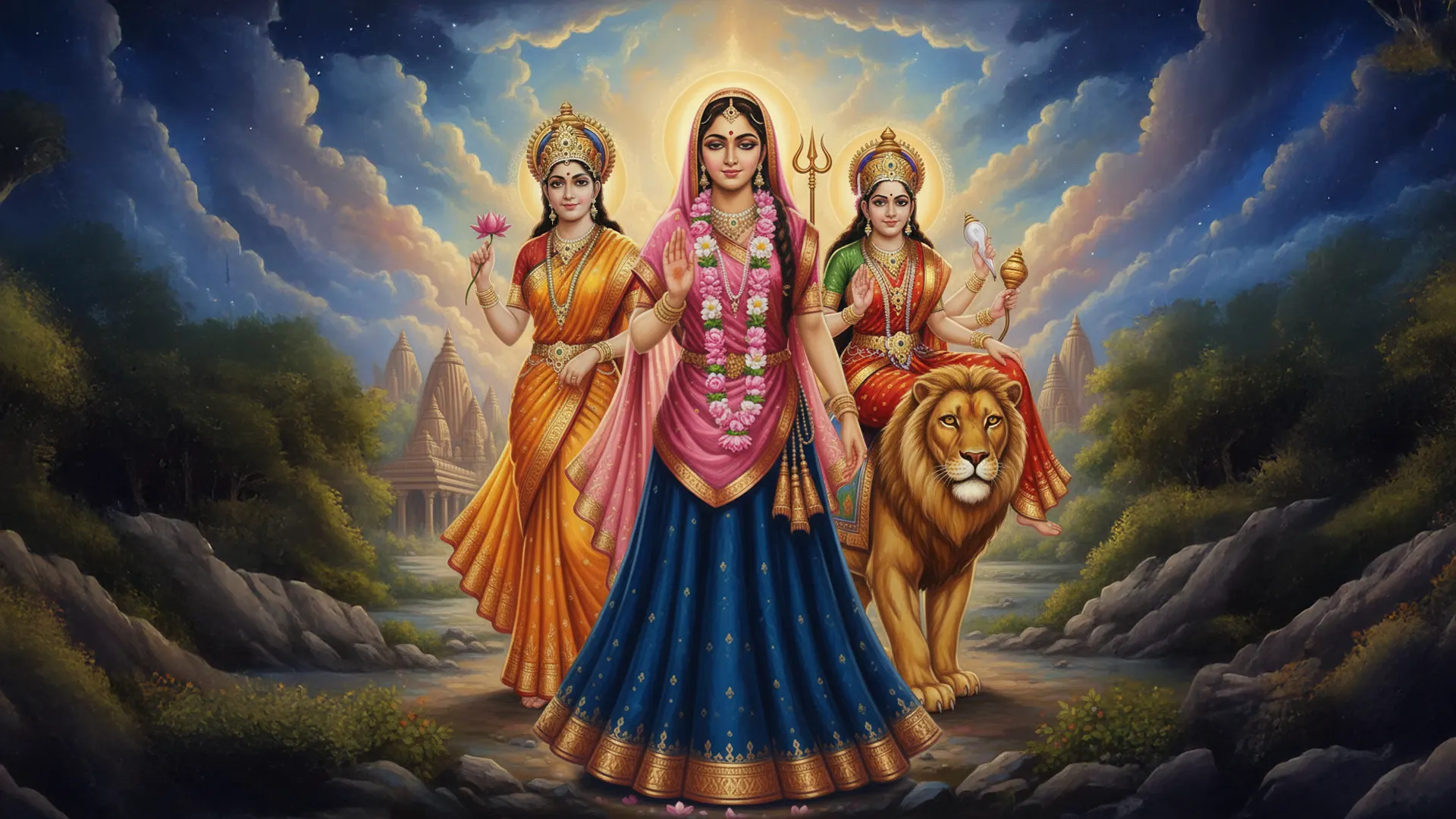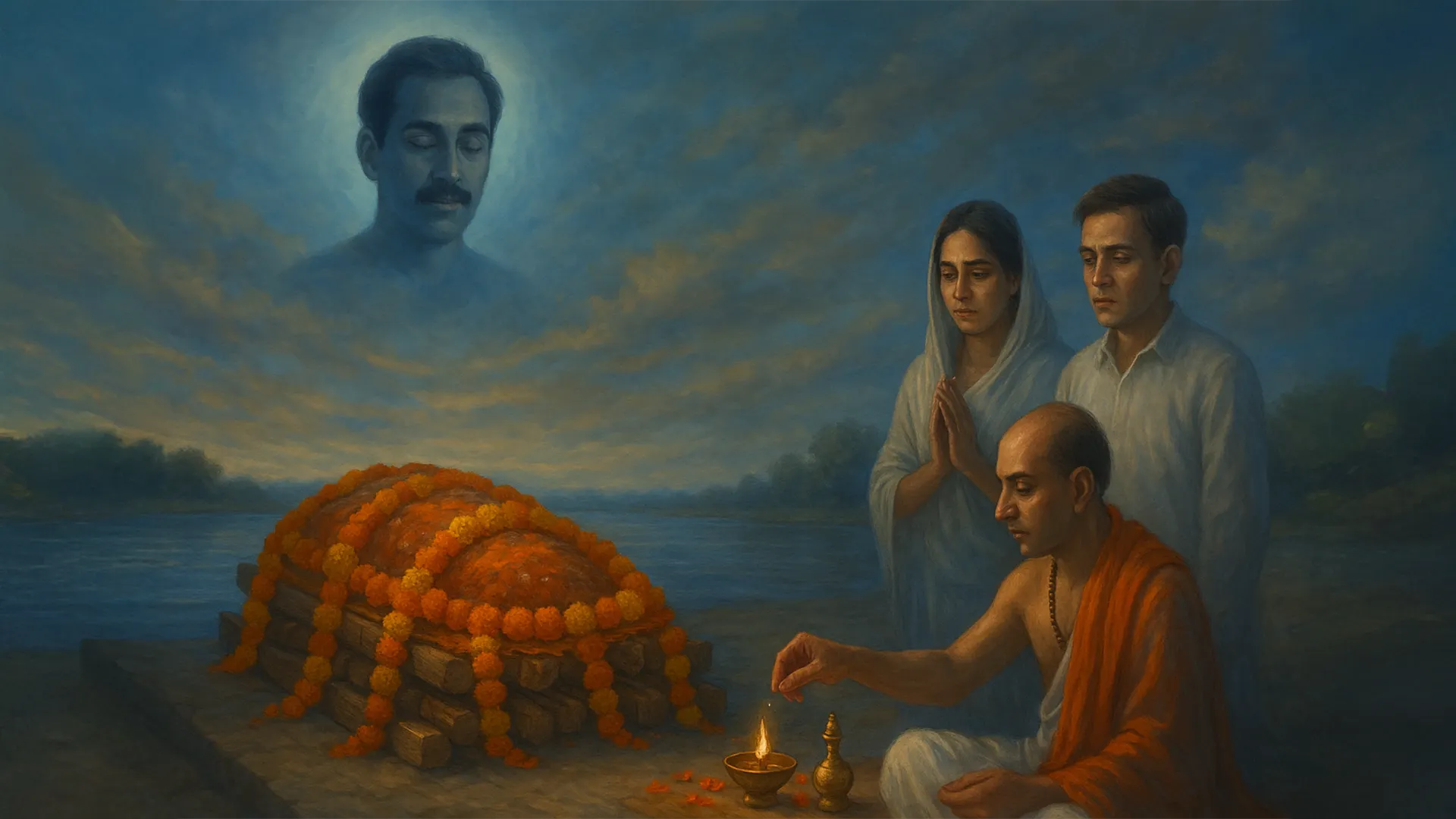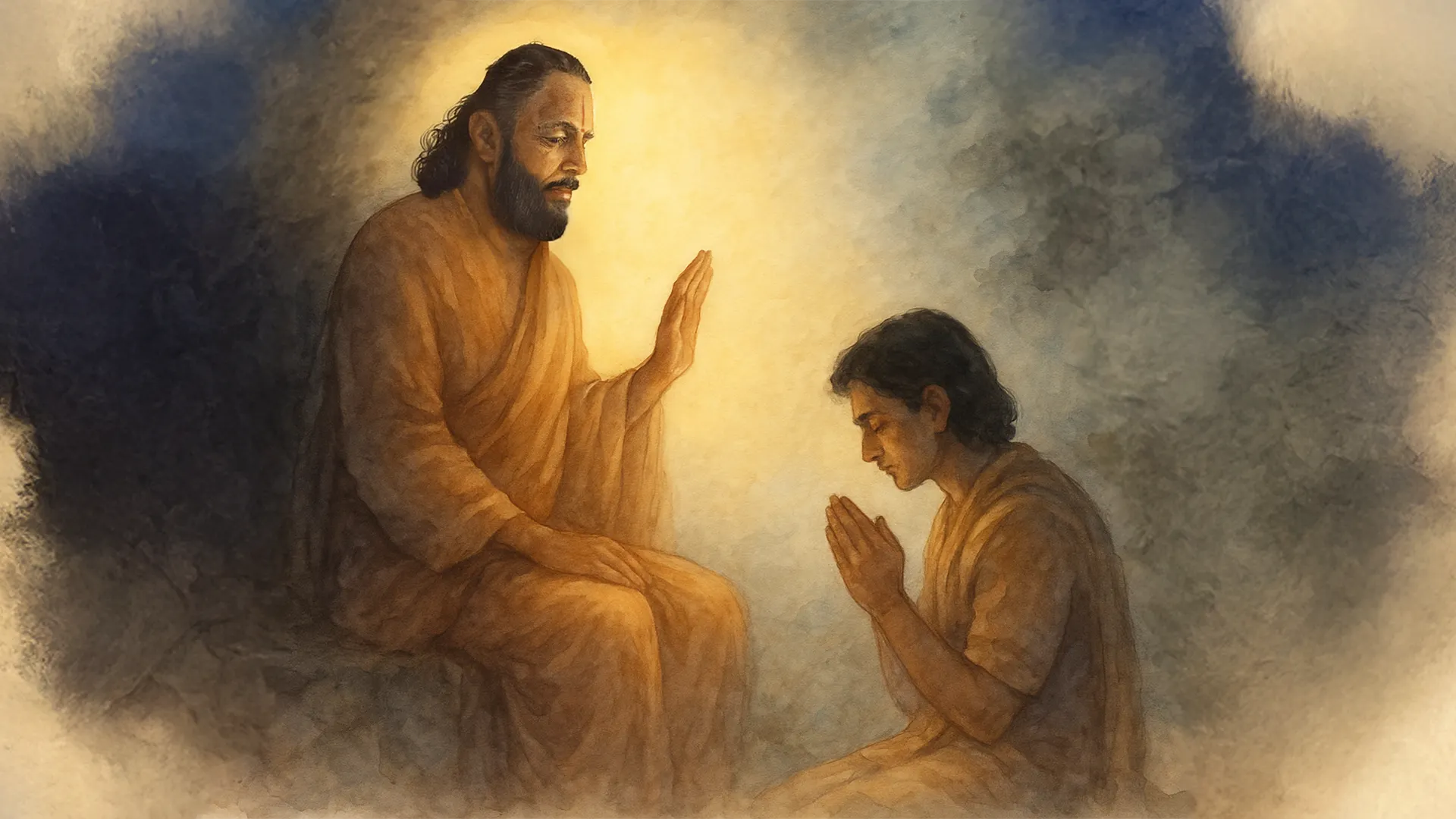Sadhana isn't the absence of storms—it's the art of dancing in the hurricane while keeping your flame alive.
Sadhana or spiritual practice doesn’t mean everything around us is perfect—it means we choose peace despite imperfections. It means that although we might have every reason to be disturbed, we remain undisturbed. Though there may be temptations to become attached, we choose detachment. Even when pride beckons, we stay humble.
Our spiritual progress accelerates when we accept difficult situations as opportunities for inner growth.
Why Your Toughest Critic Might Be Your Greatest Teacher
There’s an old story about a saint who had an arch-enemy. Interestingly, the saint never saw the man as an enemy, but the man certainly did—he constantly criticised and insulted the saint, trying to bring him down with harsh words and negativity.
One day, word came that the man had died. The saint’s disciples felt relieved and even suggested celebrating his passing, expecting the saint to feel the same. But to their surprise, the saint began to cry. Confused, they asked, “Why are you crying, Guruji?”
The saint calmly replied, “Because of him, I was progressing so fast. His constant criticism and opposition forced me to grow stronger and purer inside. Now that he is gone, who will challenge me? Without his negativity, I may become complacent and stop evolving.”
This idea—that even opposition can be a hidden blessing—is beautifully echoed in the timeless wisdom of Saint Kabir:
निंदक नियरे राखिए , आंगन कुटी छवाय ।
बिन पानी साबुन बिना, निर्मल करे सुभाय ।।
Nindak niyare raakhiye, aangan kuti chhaway,
Bin paani sabun bina, nirmal kare subhaay.
“Keep your critic close, let him dwell in your courtyard. Without soap or water, he will cleanse your character.”
In other words, harsh criticism and opposition, though unpleasant, can actually serve as a cleansing force for the soul. When someone criticises you fiercely, instead of resisting or retaliating, try to tolerate and absorb it. That very tolerance polishes your character and spiritual strength far more than comfort or praise ever could. Adversity, in this sense, is a powerful catalyst for inner growth.
How Challenges Become God’s Secret Tools for Growth
It’s easy to appreciate positive circumstances—the times when everything flows smoothly, when success and happiness come effortlessly. These moments certainly nurture us and help us grow.
But negative situations—pain, failure, conflict, loss—are often the special tools God uses to awaken our dormant inner strength. They force us into a “do or die” moment. We are pushed to choose: Will we rise to higher consciousness, or will we collapse under pressure?
Such challenges become turning points. They shake us out of our comfort zone, stripping away illusions and complacency. In the crucible of hardship, we find the chance to discover resilience, patience, humility, and surrender.
Most spiritual growth happens when we push ourselves from within. The difficult moments demand a deeper awareness and a greater connection with the Divine. They call us to surrender our ego and rise above the circumstances.
So, instead of fearing adversity, learn to see it as God’s hidden hand shaping your soul. It is often in the darkest tunnels that we find the brightest light within ourselves.
The Wisdom of Equanimity
In the Bhagavad Gita (6.7), Shree Krishna beautifully describes the yogi who is truly established in sadhana:
जितात्मन: प्रशान्तस्य परमात्मा समाहित: |
शीतोष्णसुखदु:खेषु तथा मानापमानयो: || 7||
Jeet-aat-manah prashaant-asya para-maatma samaahitah
Sheet-oshna sukh-dukh-eshhu tathaa maan-aapamaan-ayoh
"The yogis who have conquered the mind rise above the dualities of cold and heat, joy and sorrow, and honour and dishonour. Such yogis remain peaceful and steadfast in their devotion to God."
Just as an aeroplane must rise above the clouds to find sunlight, our mind too must soar beyond life’s dualities. Joy and sorrow, gain and loss — these are illusions born of ignorance. When ignorance fades, these fluctuations lose their power to disturb us.
Perception Shapes Emotion
Here’s a story to consider:
A man was trying to sell his factory. One morning, he heard it had caught fire. Shocked, he rushed there, lamenting, “Thirty years of my life!”
Then his son ran up: “Relax, Father. You sold it last night; it’s not yours anymore.” Instantly, the man calmed down.
But soon another son arrived: “The buyer’s cheque bounced. The deal is off.” The man wept again.
Finally, a third son came with news: “The buyer will honour the deal, the cheque will be replaced, and insurance will cover the loss.” The man smiled once more.
The factory burned, but his emotions shifted because his perception of ownership changed. This shows the incredible power our mindset holds.
Letting Go of “I, Me, and Mine” to End Suffering
In a Gurukul, students studied Vedanta under a wise Guru. Among them was King Janak, always seated at the front, not for his royal status, but because the Guru knew Janak was truly steady and wise inside. The other students whispered, suspecting favouritism, seeing only a king, not a seeker.
To teach them a deeper truth, the Guru set a test.
Suddenly, palace officers rushed in to tell Janak that his capital was burning. The students expected him to panic or run, but Janak remained calm and focused on his studies.
At the same time, the Guru created smoke and flames inside the Gurukul. Students panicked, scrambling to save their belongings, but Janak sat unmoved, serene amid the chaos.
When the fire cleared, the Guru explained:
“The palace fire was an illusion to test Janak’s detachment. The fire here showed where true fear lies—within attachment to body and possessions. Most identify as ‘I am this body,’ so loss and discomfort cause panic and suffering.”
“But Janak,” said the Guru, “was rooted in higher wisdom. He knew the body and the kingdom were temporary. What truly matters is the soul’s growth and the pursuit of truth.”
The lesson is clear: When spiritual growth is your priority, peace becomes unshakeable, no longer dependent on outside circumstances.
Janak’s calm was not ignorance or denial—it was the profound understanding that everything material, including the body, is temporary, while the soul’s growth is eternal and unchanging.
Freedom Even from Inner Attachment
True spiritual freedom goes beyond detachment from the outer world. It’s not enough to stay calm during chaos or loss—we must also release our attachment to comfort, bliss, and even inner peace.
Sariputra, one of Buddha’s closest disciples, once found deep joy in meditating in the stillness of the ashram. When Buddha asked him to leave and serve in the world, he hesitated. “But Guruji,” he said, “I’ve found such peace here.”
Buddha replied, “First, you were attached to the outer world. Now, you are attached to inner peace. True enlightenment means freedom from both.”
This is a deeper truth: even clinging to a quiet mind or pleasant state can bind us. If peace is something we depend on, we are still vulnerable.
When we are no longer attached—either to chaos or comfort—we become truly free.
Inner Peace Isn’t Escape—It’s Alignment
Sadhana is not about running away from life. It’s about living fully in the world while staying anchored in your higher self. To face chaos without losing your calm and performing your duties without losing your direction is the true sign of spiritual strength.
The goal is not silence in meditation but stillness in motion, not peace in retreat but peace in responsibility. When your actions arise from a place of inner alignment, life becomes an expression of your connection with the Divine within. Carry that stillness into every moment—into work, relationships, and challenges.
Then, peace is no longer a fleeting emotion. It becomes your natural state. A presence that radiates no matter what life brings.
Your Challenge: Turn Storms into Strength
The next time life tests you—whether through criticism, loss, or chaos—pause and reflect:
- "Is this disturbance outside of me, or within my own attachment?"
- "How can this moment polish my soul, like Kabir’s critic?"
- "Will I let this define me, or refine me?"
Take a moment now. Reflect on one recent struggle. Instead of resisting it, thank it silently—for it’s here to carve your spirit into something unbreakable.
"A saint’s peace isn’t grown in quiet gardens, but in the furnace of friction." 🔥
Will you walk through the fire?
“I am not the storm. I am the sky it passes through.”

